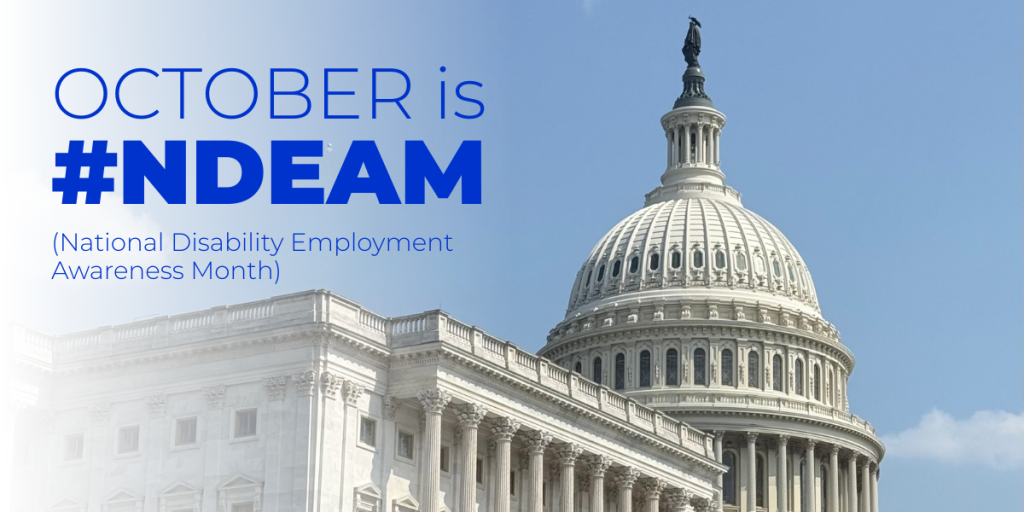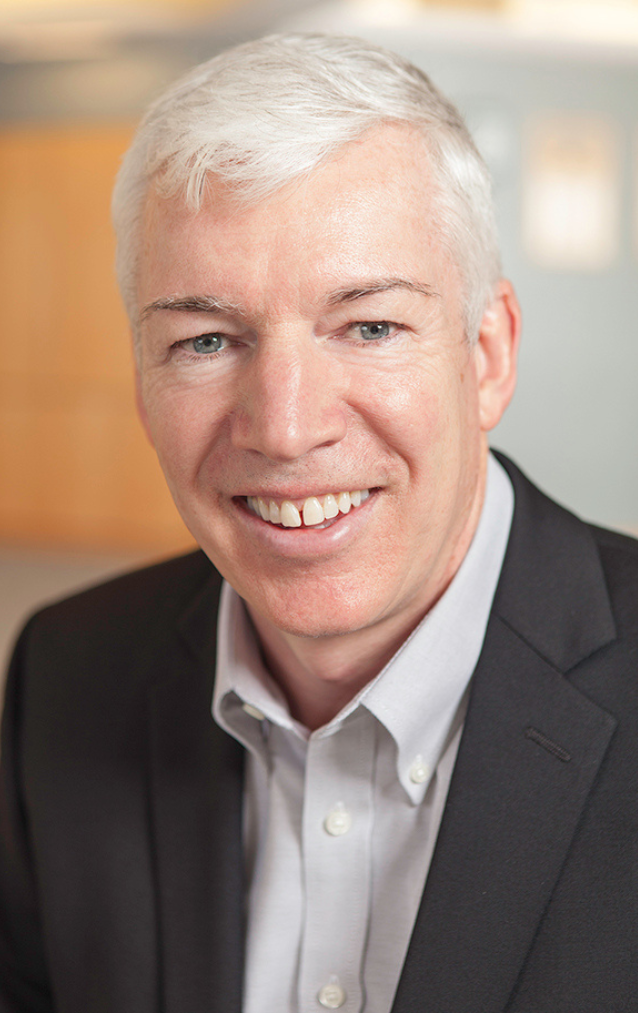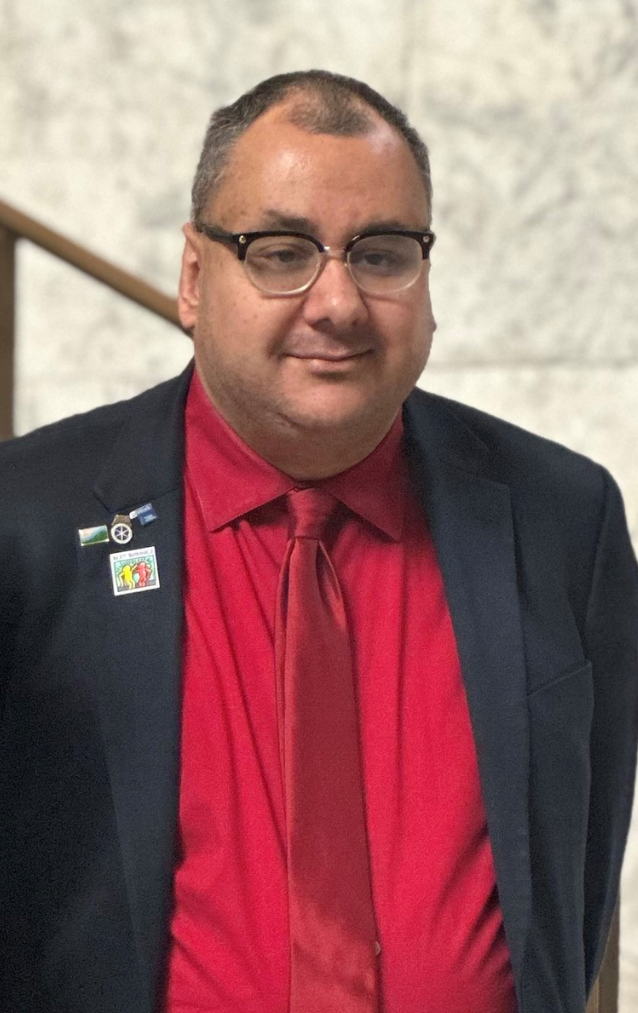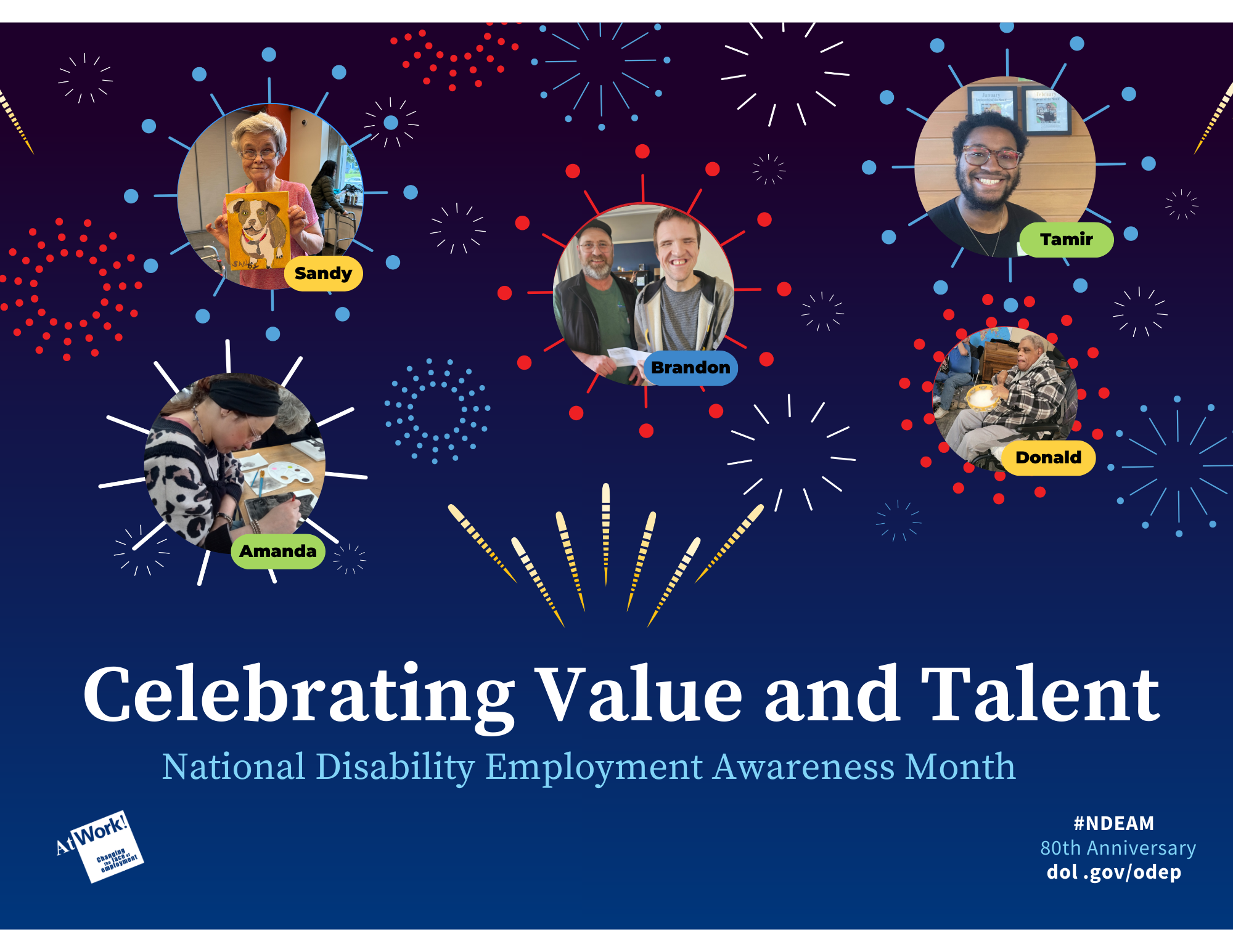
Leading with Inclusion: AtWork! Voices on National Disability Employment Awareness Month
National Disability Employment Awareness Month (NDEAM), is the annual recognition of the positive impact of people with disabilities in the American workforce. This yearly event began in 1945 as a weeklong national observance of the contributions of people with physical disabilities. In 1988, Congress designated the commemoration as NDEAM, which then evolved to acknowledge the importance of increasing opportunities for people with disabilities, including those with mental health conditions and other nonobvious disabilities. In 2001, ODEP was created and entrusted to administer NDEAM, including the selection and promotion of its annual theme. Visit dol.gov to Learn More.
Each year, AtWork! gathers reflections from leadership during #NDEAM to reaffirm our commitment to the inclusion of people with disabilities in the workforce and community.
A message from our CEO,
Chris Jahrman

Each October, the nation recognizes National Disability Employment Awareness Month (NDEAM) as a time to honor the many contributions of people with disabilities to our workforce and to reflect on the work that is still needed to build truly inclusive workplaces. NDEAM should be recognized for what it is – a call to action.
Despite decades of progress the employment gap between people with disabilities and those without remains significant. In 2024, less than 23% of people with disabilities were employed compared to 66% of those without disabilities. Thus, the call to action. From my last few years at the helm of AtWork!, a supported employment provider, I can tell you that these disparities are not from a lack of talent or motivation. I’m inspired every day by the work our organization witnesses involving people with disabilities. Instead, the disparity is largely rooted in ableism and longstanding barriers in our employment systems.
“That’s why this month is so powerful. NDEAM helps to bring these challenges into public conversation, to celebrate contributions, and shift perceptions. “
While progress has been made, I’m still surprised by the number of inaccessible online applications, unaccommodating interview processes, and environments that lack inclusion or even accessibility to people with disabilities. All are obstacles to secure employment, and there are more should they be hired. Often new employees with disabilities may face misconceptions, isolation, and limited opportunities for advancement. That’s why this month is so powerful. NDEAM helps to bring these challenges into public conversation, to celebrate contributions, and shift perceptions.
“There’s a growing body of evidence that inclusion isn’t just the right thing to do — it’s smart business.”
Join AtWork! and other employers this month in building greater awareness that people with disabilities have a rightful place in the workforce. There’s a growing body of evidence which concludes that inclusion is not just the right thing to do, but it’s also smart business strategy. Companies identified as leaders in disability employment saw on average 60% higher revenue and nearly twice the profit of their industry peers.
Your call to action?
- Create the time to reflect on what you can do to support hiring people with disabilities.
- Hold space to have conversations about inclusion in workplaces.
- Invite speakers to your worksite to discuss these issues.
- Review hiring practices and look at your internal processes for hiring through a lens of accessibility.
- Donate to organizations that are leading the efforts for a more inclusive workforce that includes people with disabilities.
- Reach out to AtWork! or other supported employment organizations to discuss ways you can personally be involved.
Simply put, lean into supporting disability rights to honor and protect the abilities and dignity of all.
Have a great October!
A message from our Advocacy Manager,
John Lemus

This year National Disability Employment Month (NDEAM) is in its 80th year. That’s a long time. During this time the concepts of supported employment has changed drastically. From the “try another way” model to the customized employment model. From Congregate sheltered workshops where individuals made less than the minimum wage to Community Employment, where sometimes individuals are out earning the people who support them.
What a shift in the landscape, all in the name of creating inclusion for people with disabilities in the workforce. The power of developmental diversity at work is crucial to the success of not only people with disabilities but also the success of the business community.
In Spokane, we have a business where I hold all my coffee meetings, Brews Bros, conveniently located in the Peyton building complex and a few hundred feet from the Spokane Transit hub. Brews Bros has continued to hire people with disabilities for as long as I can remember.
I was raised to have a strong ethic. In my upper teen years, we lived on the outskirts of Spokane, close enough to the city line that I went to the Cheney School District. There was always something to do: feeding chickens, dogs, donkeys, goats, and of course, cleaning up after them, restocking firewood for a wood stove, and keeping the acreage in top shape. These things taught me a lot about the kind of work I wanted to do. My first summer job was working on a weed crew at a local Air Force Base, where I made subminimum wage. I wanted to quit after the first week, but I believe that once you accept a job, you are obligated to show up and put in 100% every day.
Flash forward to 2022, I led a legislative effort that banned subminimum wages in the state of Washington, which has led to a net zero count of 14c certificates in Washington State (since November of 2023). DSHS and L&I just released a final report that shuttered the state’s special certificate program.
Many positive things are happening to support people with disabilities in the workforce. My favorite right now is social enterprises that create tangible training opportunities for those with disabilities. During an APSE conference last year in charlotte our team took a visit to Bitty & Beaus Coffee a social enterprise started by Ben & Amy Wright who wanted a place for their children to work when they got older. The store, outside of a few managers, was completely run by people with disabilities who had been trained in all aspects of the business. These kinds of artisan training opportunities help individuals with disabilities gain tangible experience that can translate to other businesses in the community.
“Whenever possible, we should spend our dollars at businesses who employ the people we serve.”
I’ve found that the best way to cultivate opportunities for people with disabilities is to pitch at places we frequent. Whenever possible, we should spend our dollars at businesses who employ the people we serve. From the dealership where we purchase our vehicles to the restaurants we use for board meeting catering. This makes for a true partnership that isn’t just transactional but a shared commitment to each other’s mission. If you think about it, we all have connections to an incredible number of vendors within our organizational and professional networks that could translate into opportunities for people with disabilities.
I look forward to what the next 80 years bring.

